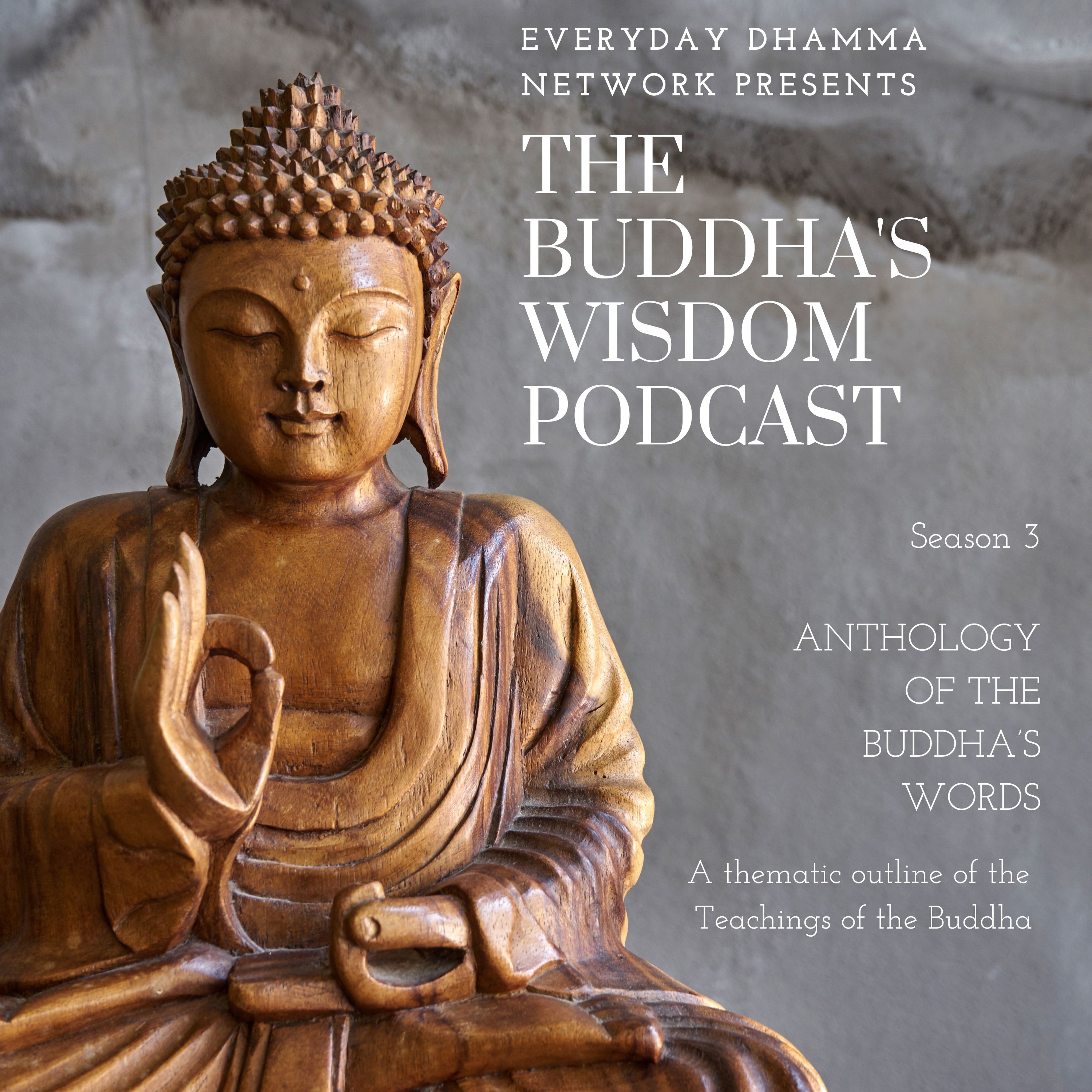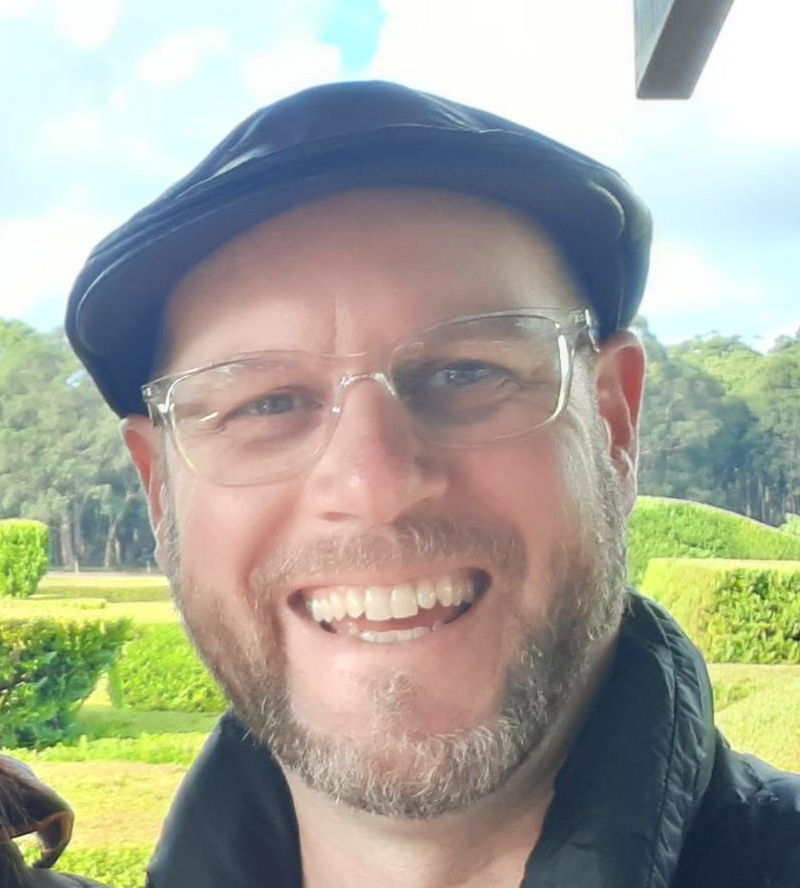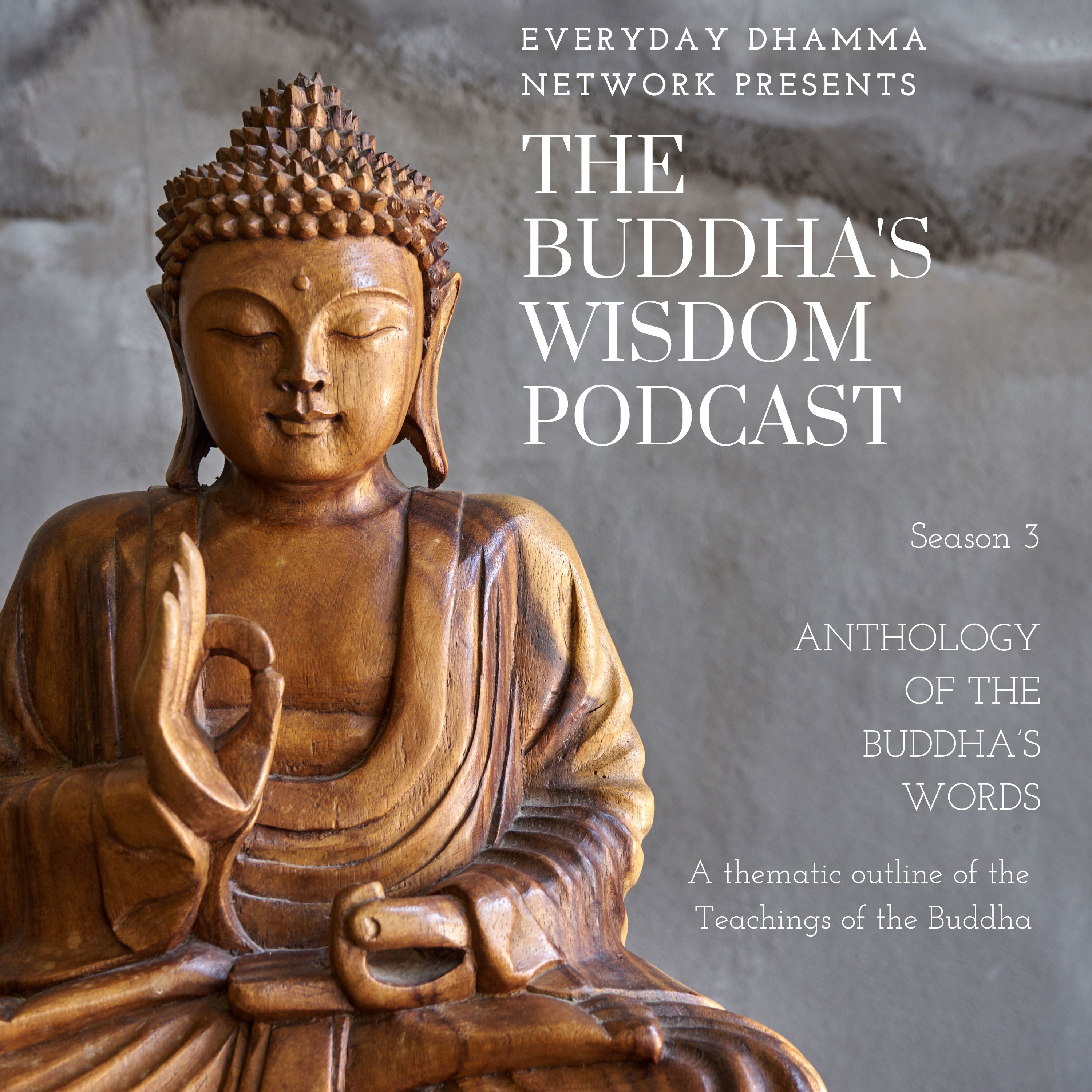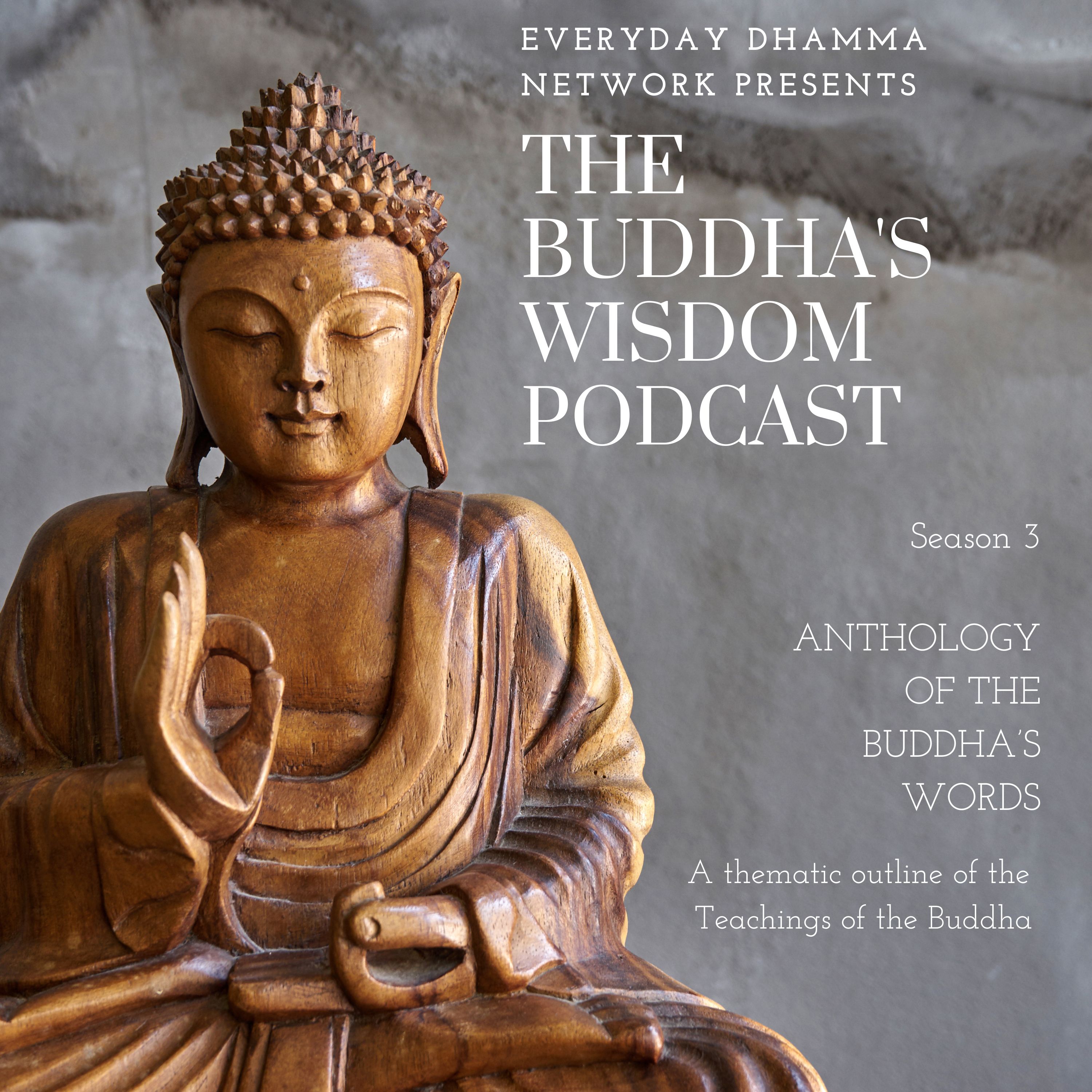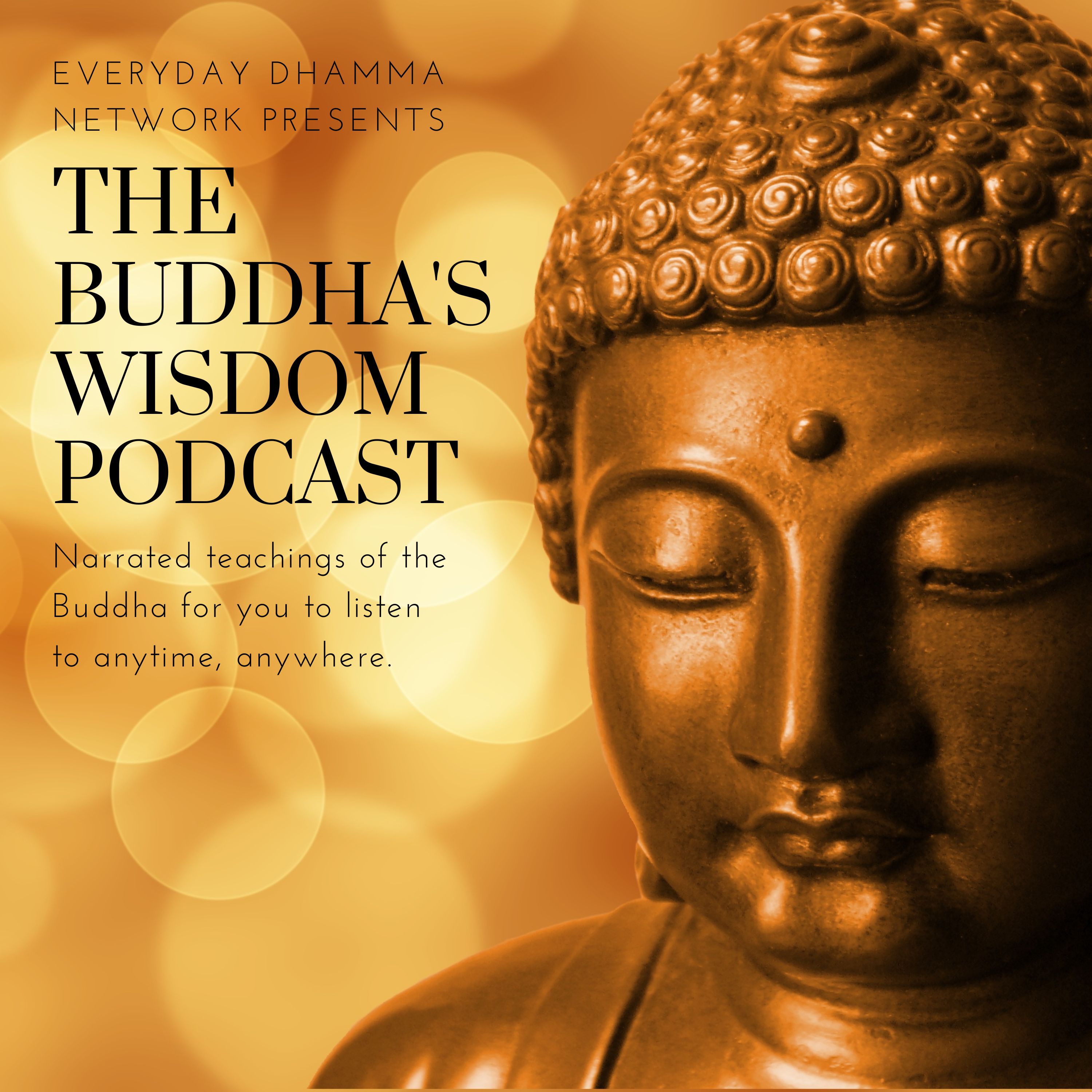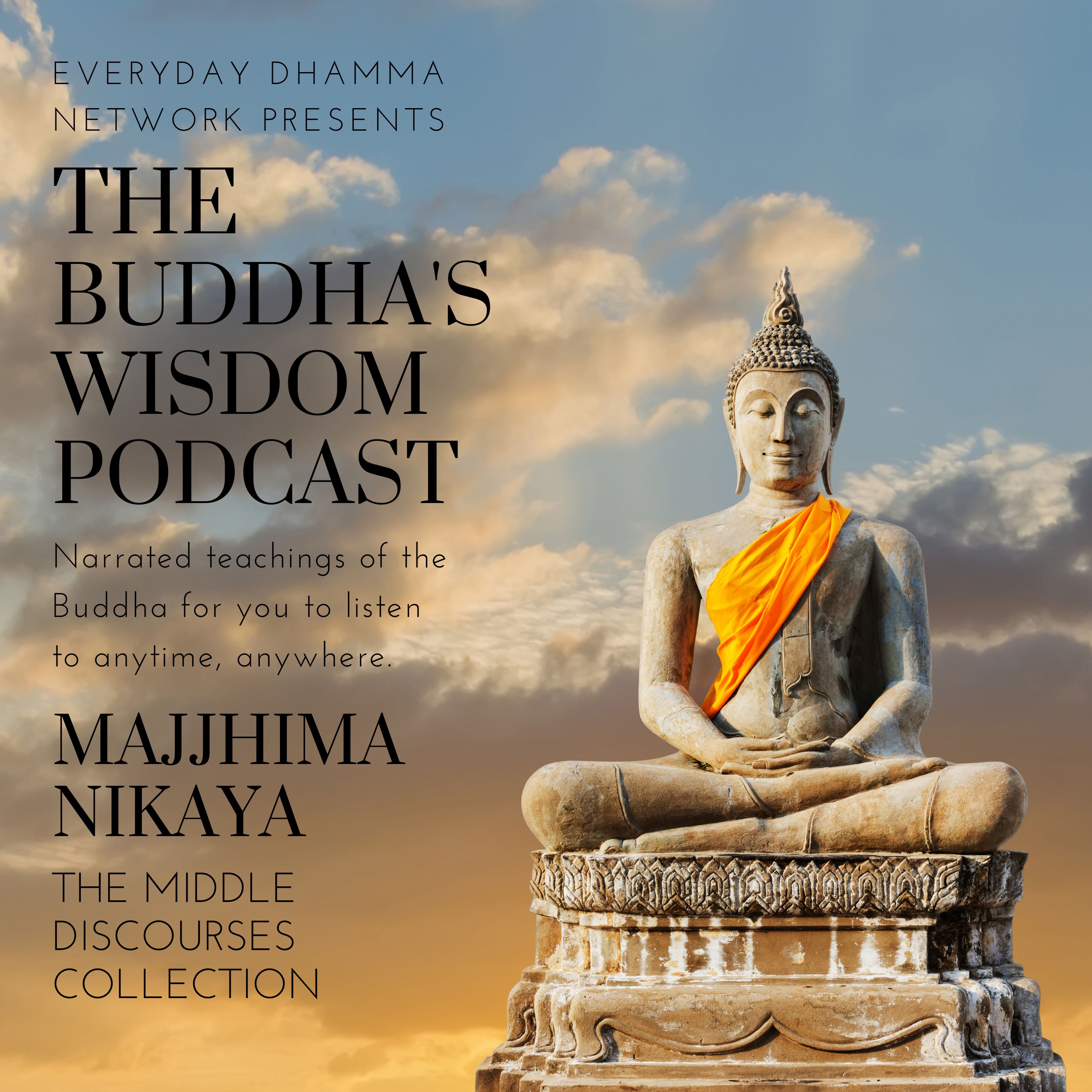Episode Transcript
## Sutta 1 - Grass and sticks
The Buddha said this:
“Mendicants, transmigration has no known beginning. No first point is found of sentient beings roaming and transmigrating, shrouded by ignorance and fettered by craving. Suppose a person was to strip all the grass, sticks, branches, and leaves in the Black Plum Tree Land, gather them together into one pile, and chop them each into four inch pieces. They’d lay them down, saying: ‘This is my mother, this is my grandmother.’ The grass, sticks, branches, and leaves of the Black Plum Tree Land would run out before that person’s mothers and grandmothers.
Why is that? Transmigration has no known beginning. No first point is found of sentient beings roaming and transmigrating, shrouded by ignorance and fettered by craving. For such a long time you have undergone suffering, agony, and disaster, swelling the cemeteries. This is quite enough for you to become disillusioned, dispassionate, and freed regarding all conditions.”
SN 15:1
## Sutta 2 - The Earth
At Sāvatthī.
“Mendicants, transmigration has no known beginning. No first point is found of sentient beings roaming and transmigrating, shrouded by ignorance and fettered by craving. Suppose a person was to make the whole earth into clay balls the size of jujube seeds. They’d lay them down, saying: ‘This is my father, this is my grandfather.’ The whole earth would run out before that person’s fathers and grandfathers.
Why is that? Transmigration has no known beginning. No first point is found of sentient beings roaming and transmigrating, shrouded by ignorance and fettered by craving. For such a long time you have undergone suffering, agony, and disaster, swelling the cemeteries. This is quite enough for you to become disillusioned, dispassionate, and freed regarding all conditions.”
SN 15:2
## Sutta 3 - A Mountain
At Sāvatthī.
Then a mendicant went up to the Buddha, bowed, sat down to one side, and asked him, “Sir, how long is an eon?”
“Mendicant, an eon is long. It’s not easy to calculate how many years, how many hundreds or thousands or hundreds of thousands of years it lasts.”
“But sir, is it possible to give a simile?”
“It’s possible,” said the Buddha.
“Suppose there was a huge stone mountain, a league long, a league wide, and a league high, with no cracks or holes, one solid mass. And as each century passed someone would stroke it once with a fine cloth from Kāsi. By this means the huge stone mountain would be worn away before the eon comes to an end. That’s how long an eon is. And we’ve transmigrated through many such eons, many hundreds, many thousands, many hundreds of thousands.
Why is that? Transmigration has no known beginning. … This is quite enough for you to become disillusioned, dispassionate, and freed regarding all conditions.”
SN 15:5
## Sutta 4 - The River Ganges
Near Rājagaha, in the Bamboo Grove. Then a certain brahmin went up to the Buddha, and exchanged greetings with him.
When the greetings and polite conversation were over, he sat down to one side and asked the Buddha, “Worthy Gotama, how many eons have passed?”
“Brahmin, many eons have passed. It’s not easy to calculate how many eons have passed, how many hundreds or thousands or hundreds of thousands of eons.”
“But worthy Gotama, can you give a simile?”
“I can,” said the Buddha.
“Consider the Ganges river from where it originates to where it meets the ocean. Between these places it’s not easy to calculate how many grains of sand there are, how many hundreds or thousands or hundreds of thousands of grains of sand. The eons that have passed are more than this. It’s not easy to calculate how many eons have passed, how many hundreds or thousands or hundreds of thousands of eons.
Why is that? Transmigration has no known beginning. No first point is found of sentient beings roaming and transmigrating, shrouded by ignorance and fettered by craving. For such a long time you have undergone suffering, agony, and disaster, swelling the cemeteries. This is quite enough for you to become disillusioned, dispassionate, and freed regarding all conditions.”
SN 15:8
## Sutta 5 - Like a dog on a leash
“Mendicants, transmigration has no known beginning. No first point is found of sentient beings roaming and transmigrating, shrouded by ignorance and fettered by craving.
There comes a time when the ocean dries up and evaporates and is no more. But still, I say, there is no making an end of suffering for sentient beings roaming and transmigrating, shrouded by ignorance and fettered by craving.
There comes a time when Sineru the king of mountains is burned up and destroyed, and is no more. But still, I say, there is no making an end of suffering for sentient beings roaming and transmigrating, shrouded by ignorance and fettered by craving.
There comes a time when the great earth is burned up and destroyed, and is no more. But still, I say, there is no making an end of suffering for sentient beings roaming and transmigrating, shrouded by ignorance and fettered by craving.
Suppose a dog on a leash was tethered to a strong post or pillar. It would just keep running and circling around that post or pillar.
In the same way, take an unlearned ordinary person who has not seen the noble ones, and is neither skilled nor trained in their teaching. They’ve not seen true persons, and are neither skilled nor trained in their teaching. They regard form … feeling … perception … choices … consciousness as self, self as having consciousness, consciousness in self, or self in consciousness. They just keep running and circling around form, feeling, perception, choices, and consciousness. Doing so, they’re not freed from form, feeling, perception, choices, and consciousness. They’re not freed from rebirth, old age, and death, from sorrow, lamentation, pain, sadness, and distress. They’re not freed from suffering, I say.
A learned noble disciple has seen the noble ones, and is skilled and trained in the teaching of the noble ones. They’ve seen true persons, and are skilled and trained in the teaching of the true persons. They don’t regard form … feeling … perception … choices … or consciousness as self, self as having consciousness, consciousness in self, or self in consciousness. They don’t keep running and circling around form, feeling, perception, choices, and consciousness. By not doing so, they’re freed from form, feeling, perception, choices, and consciousness. They’re freed from rebirth, old age, and death, from sorrow, lamentation, pain, sadness, and distress. They’re freed from suffering, I say.”
SN 22:99
